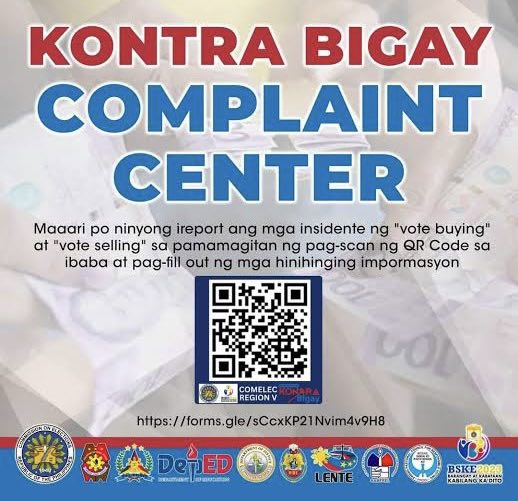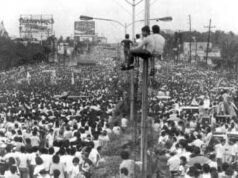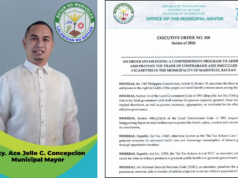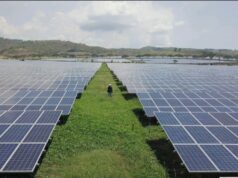THE ESTABLISHMENT of the Kontra Bigay Complaint Center (KBCC) under Comelec Resolution No. 10946 is a commendable step towards ensuring clean, honest, and credible elections in the Philippines. By actively addressing vote-buying and vote-selling, this initiative paves the way for a more transparent electoral process where only the real qualified candidates and the true choice of the voters will emerge victorious.

With this measure, we can expect significant improvements not only in elections but also in governance, as leaders will be elected based on merit rather than financial influence. However, the real challenge lies in Comelec’s strict and consistent implementation of this resolution. While many Comelec resolutions are well-crafted, their effectiveness is often diminished by weak enforcement.
As taxpayers, we must be vigilant in monitoring the proper implementation of ComRes 10946. After all, it is our money that funds the elections and the various initiatives of Comelec. If this resolution is effectively implemented, it will serve its intended purpose—ensuring that the right candidates, chosen by the people and not by money politics, take public office.
However, if Comelec fails to properly enforce this measure, it would not only be a disservice but a betrayal of the Filipino people. Using taxpayers’ money for an election process that is riddled with fraud and irregularities is unacceptable. Comelec must remember that their mandate is to protect the sanctity of the ballot, and failing to do so means they are squandering public funds and undermining the very essence of democracy.
Beyond preventing vote-buying and fraud, we must also focus on educating and guiding Filipino voters—especially those within our reach—to select and elect the best candidate. Elections are not just about stopping illegal activities; they are about making informed choices that will shape the future of our country.
Many voters, particularly those in marginalized communities, are often swayed by temporary assistance rather than considering the long-term impact of their vote. This is where we, as responsible citizens, must step in to educate our fellow Filipinos. We should help them understand the qualities of good leaders, the importance of platforms and governance records, and the dangers of electing officials who rely on money politics rather than competence and integrity.
The Comelec must take an active role in voter education by providing clear, accessible, and unbiased information about candidates. It is not enough to simply regulate elections—they must also empower voters to make informed decisions. Comelec should present the qualifications, platforms, and track records of each candidate through various channels, including social media, public forums, and educational programs.
Only when voters are properly informed can they vote wisely and elect leaders who are genuinely capable of serving the nation. If Comelec fails to implement this crucial responsibility, elections will continue to be a contest of popularity and financial power rather than a true exercise of democracy.
We must demand accountability. The success of this initiative depends not only on Comelec but on all of us as responsible citizens. We should actively report violations, push for transparency, and ensure that Comelec does not fall short of its duty. At the same time, we must guide and educate voters, because an informed electorate is the strongest safeguard against electoral fraud and bad governance.
The time to act is now. Comelec must deliver on its promises, and we, the people, must ensure they do. Our future depends on the choices we make this coming mid-term elections.
(The author of this commentary is a renowned business leader and the chairman of the Pampanga Chamber of Commerce and Industry)





